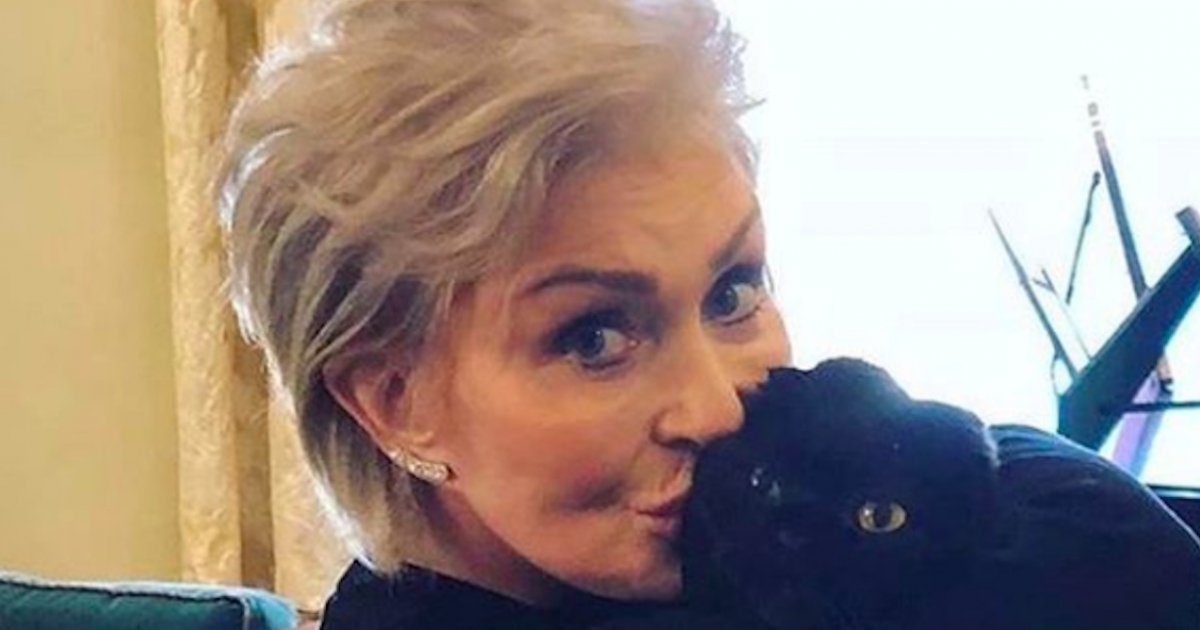Sharon Osbourne Has COVID-19
- Colon cancer survivor Sharon Osbourne, 68, has announced that she was briefly hospitalized after testing positive for the coronavirus.
- Colon cancer is the third most common form of cancer in America, but regular screening can detect and even prevent the disease.
- People fighting cancer and survivors need to be especially careful during the coronavirus but should still continue screenings and treatments.
View this post on Instagram
She’s now healing apart from husband and famed rockstar Ozzy Osbourne, who has Parkinson’s disease. The couple have been married for 38 years and been each other’s rock through the highs and lows of life.
Osbourne had previously talked about her fear of the virus, saying in another Instagram post, “I wish there was something I could say to comfort you all. Some wisdom I could drop on you to relive you from the fear that surrounds us all right now. The truth is I am scared too.”
Sharon’s Colon Cancer Battle
Sharon was diagnosed with colon cancer in 2002 at age 50. She had surgery to remove part of her large intestine and surrounding lymph nodes before undergoing chemotherapy to kill any remaining cancer cells. She would go into remission shortly after treatment. In 2012, she had a double mastectomy to reduce her risk of developing breast cancer.
Colon cancer, which is cancer that forms in your large intestine, is the third most common form of cancer for both men and women: over 100,000 Americans are diagnosed with the disease every year.
Fortunately, colon cancer can be easily detected with a colonoscopy, which is a test that uses a camera attached to a long, thin tube to check for polyps (small abnormal growths) throughout your colon and rectum.
Related: You Shouldn’t Die From Embarrassment”: Colon Cancer Can Be Prevented
By removing these polyps before they become cancerous, doctors can actually prevent colon and rectal cancer before they happen.
Most experts agree that you should take a colonoscopy every ten years beginning at age 45, while those at high risk should be tested sooner. People who have already undergone the procedure and have been found to have growths should be checked more frequently to ensure that cancer doesn’t develop.
What Cancer Patients Need to Know About COVID-19
For some survivors like Sharon, the COVID-19 pandemic, and the emotions that have come with it, are an unwanted reminder of their own battles with cancer.
Pamela Rafalow Grossman was diagnosed with breast cancer 12 years ago, and the emotions that accompanied her treatment have suddenly come back during the pandemic.
“Bam – the COVID-19 pandemic arrived, and many of these feelings flooded over me with renewed vigor,” Grossman previously wrote for SurvivorNet. Anxiety and fearfor my loved ones and, now again, for myself; dread of bad news that could strike from the blue; and an inescapable sense of vulnerabilityalong with impatient determination not to waste time.”
People who are currently receiving chemotherapy or immunotherapy face a much higher risk of severe complications if they contract COVID-19. For those who received these therapies in the three months before getting sick, the mortality rate can spike up to 50%.
"It is not surprising that a patient on chemotherapy may do worse when they get sick," Dr. Heather Yeo, a colon and rectal surgeon at Weill Cornell Medical Center, told SurvivorNet in a previous interview. "Chemotherapy in general lowers the body's immune system and puts people at risk for other infections."
But fear of the coronavirus should not prevent anyone from seeking treatment for cancer, especially given the great lengths doctors take to minimize the risk of virus transmission.
"Whether or not you can delay depends very much on the type of treatment and the risk-benefit ratio," Dr. Tawee Tanvetyanon, a medical oncologist at Moffitt Cancer Center in Tampa, FL, told SurvivorNet in a previous interview. "Some treatment, like preventive chemotherapy, has a grace period, so it might be worth discussing a delay. Other treatments should not be put off."
Consult with your medical team and stick to the best plan of treatment to ensure you can beat cancer while staying safe.
It's Important To Continue Cancer Screenings Through COVID-19
For those who have not been diagnosed with cancer, it’s imperative to continue regularly-scheduled screenings, as the earlier cancer is caught, the better the prognosis for recovery will be.
While it’s understandable that some may be afraid of contracting COVID-19 if they venture out to get screened, the potentially life-saving benefits of screenings, combined with the medical community’s careful measures to prevent disease spread, should encourage everyone to continue their plan to remain vigilant against cancer.
Learn more about SurvivorNet's rigorous medical review process.


